
Shedding light on rare diseases: open data and model organisms
Perspectives, Science Why open data from model organisms is essential for rare disease research.
2023
perspectivesscience

Perspectives, Science Why open data from model organisms is essential for rare disease research.
2023
perspectivesscience

Lab Matters, People & Perspectives, Perspectives Jo McEntyre talks about data services, open data and a new era for research assessment.
2023
lab-matterspeople-perspectivesperspectives

Science, Science & Technology Microbial communities play essential roles in ocean ecology and planetary health. A recent publication highlights priorities for understanding and protecting ocean microbiomes.
2022
sciencescience-technology

Research highlights, Science, Science & Technology Scientists identify previously unexplored gene segments to be added to human genome databases.
2022
research-highlightssciencescience-technology

Lab Matters, People & Perspectives EMBO Director Fiona Watt discusses preprints, data sharing, and evaluation in light of EMBL’s new Open Science policy
2022
lab-matterspeople-perspectives
Lab Matters The European Molecular Biology Laboratory’s European Bioinformatics Institute (EMBL-EBI) and the Biotechnology and Biological Sciences Research Council (BBSRC) warmly welcome today’s announcement from the UK Government of a £75 million commitment from the Department for Business, Innovation…
2011
lab-matters
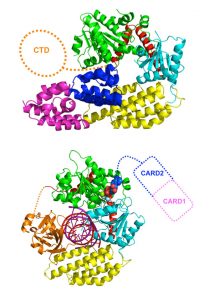
Science When a thief breaks into a bank vault, sensors are activated and the alarm is raised. Cells have their own early-warning system for intruders, and scientists at the European Molecular Biology Laboratory (EMBL) in Grenoble, France, have discovered how a particular protein sounds that alarm when it…
2011
science
Lab Matters Today marks an important step for ELIXIR, Europe’s emerging research infrastructure for life-science information, as five countries plus the European Molecular Biology Laboratory (EMBL) have signed a Memorandum of Understanding to catalyse the implementation and construction of ELIXIR. The…
2011
lab-matters
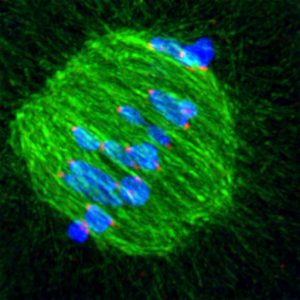
Science When an egg cell is being formed, the cellular machinery which separates chromosomes is extremely imprecise at fishing them out of the cell’s interior, scientists at the European Molecular Biology Laboratory (EMBL) in Heidelberg, Germany, have discovered. The unexpected degree of trial-and-error…
2011
science

Science Researchers can now watch molecules move in living cells, literally millisecond by millisecond, thanks to a new microscope developed by scientists at the European Molecular Biology Laboratory (EMBL) in Heidelberg, Germany. Published online today in Nature Biotechnology, the new technique provides…
2011
science
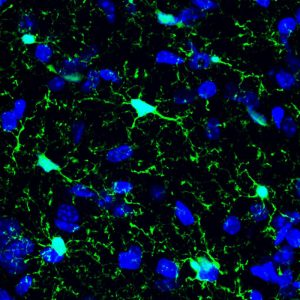
Science Gardeners know that some trees require regular pruning: some of their branches have to be cut so that others can grow stronger. The same is true of the developing brain: cells called microglia prune the connections between neurons, shaping how the brain is wired, scientists at the European…
2011
science
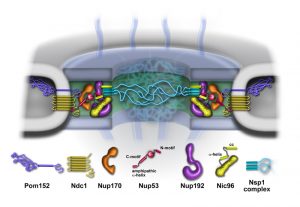
Science A fungus that lives at extremely high temperatures could help understand structures within our own cells. Scientists at the European Molecular Biology Laboratory (EMBL) and Heidelberg University, both in Heidelberg, Germany, were the first to sequence and analyse the genome of a heat-loving fungus,…
2011
science

Lab Matters Lennart Philipson, who served as EMBL’s second Director General, has passed away. Lennart headed EMBL for over a decade between 1982-93, a crucial time for molecular biology when different scientific disciplines in the life sciences were becoming increasingly interlinked. He reorganised the…
2011
lab-matters

Science As any rock-climber knows, trailing a long length of rope behind you is not easy. A dangling length of rope is unwieldy and hard to manoeuvre, and can get tangled up or stuck on an outcropping. Cells face the same problem when dragging chromosomes apart during cell division. The chromosomes are…
2011
science
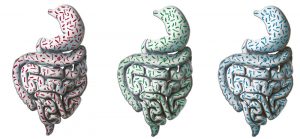
Science In the future, when you walk into a doctor’s surgery or hospital, you could be asked not just about your allergies and blood group, but also about your gut type. Scientists at the European Molecular Biology Laboratory (EMBL) in Heidelberg, Germany, and collaborators in the international MetaHIT…
2011
science
Science Scientists at the European Molecular Biology Laboratory (EMBL) in Heidelberg, Germany, have developed a new method for studying gene regulation, by employing a jumping gene as an informant. Published online today in Nature Genetics, the new method is called GROMIT. It enables researchers to…
2011
science
Science Scientists at the European Molecular Biology Laboratory (EMBL) in Heidelberg, Germany, have developed a new method which enables researchers to label any protein of their choice with any of a wide variety of previously available compounds, in living cells, by introducing a single reactive…
2011
science
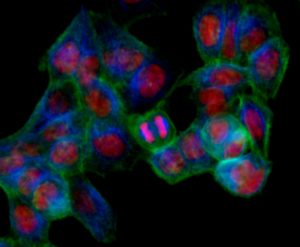
Science Scientists at the European Molecular Biology Laboratory (EMBL) and the German Cancer Research Centre (DKFZ), both in Heidelberg, Germany, have developed a new method that uncovers the combined effects of genes. Published online today in Nature Methods, it helps understand how different genes can…
2011
science

Lab Matters In a Memorandum of Understanding signed today, the European Commission (EC) and the European Molecular Biology Laboratory (EMBL) formalise their desire to maintain and further develop their cooperation. “I am delighted to sign the renewed and strengthened Memorandum of Understanding between the…
2011
lab-matters
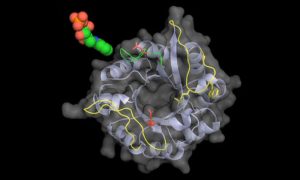
Science In a paper published online today in PNAS, scientists from the European Molecular Biology Laboratory (EMBL) in Hamburg, Germany, reveal new insights into the workings of enzymes from a group of bacteria including Mycobacterium tuberculosis, the bacterium that causes tuberculosis. The new findings…
2011
science
Lab Matters The Biotechnology and Biological Sciences Research Council (BBSRC) and the European Molecular Biology Laboratory’s European Bioinformatics Institute (EMBL-EBI) welcome news that funding has been earmarked from the UK’s Large Facilities Capital Fund for ELIXIR – the European Life-science…
2011
lab-matters
Science In our not-so-distant evolutionary past, stress often meant imminent danger, and the risk of blood loss, so part of our body’s stress response is to stock-pile blood-clotting factors. Scientists in the Molecular Medicine Partnership Unit (MMPU), a collaboration between the European Molecular…
2011
science
Science A detailed analysis of data from 185 human genomes sequenced in the course of the 1000 Genomes Project, by scientists at the European Molecular Biology Laboratory (EMBL) in Heidelberg, Germany, in collaboration with researchers at the Wellcome Trust Sanger Institute in Cambridge, UK, as well as the…
2011
science
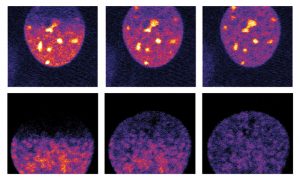
Science The sight of a researcher sitting at a microscope for hours, painstakingly searching for the right cells, may soon be a thing of the past, thanks to new software created by scientists at the European Molecular Biology Laboratory (EMBL) in Heidelberg, Germany. Presented today in Nature Methods, the…
2011
science
No matching posts found
Looking for past print editions of EMBLetc.? Browse our archive, going back 20 years.
EMBLetc. archive